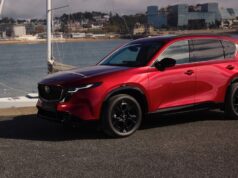Apparently Honda is having this exact dilemma in Canada. New Canadian regulations have been imposed that give buyers of fuel-efficient vehicles a $1,000 rebate. If the vehicle falls below the fuel-economy threshold of 6.5 liters per 100 kilometers, the car is eligible for the rebate.
FYI: 6.5 liters per 100 kilometers = 36.19 miles per gallon
The Toyota Yaris, one of the Fit’s main competitors is available for the rebate, since it consumes only 6.3 liters per 100 kilometers. The Fit on the other hand consumes 6.5 liters, which is right at the threshold. The company figures that the Fit could be at the same levels as the Yaris if it wasn’t for all of the standard safety equipment that comes on the Fit. Without such safety features as ABS and side air bags, the car would be eligible for the rebate.
The question is: Is the $1,000 rebate and better gas mileage worth the added risk to your life, by not having the necessary safety equipment?
This piece of legislation is very similar to one that is being proposed in California. Last week I reported on a legislator in the state that is trying to fight for legislation that would tax drivers of “gas-guzzling” vehicles and then give that same money back to drivers of more fuel-efficient vehicles. If this legislation goes through, will automakers in the US have the same dilemma as Honda is in Canada?
Full Story: Autoblog
Internal Related Story: Should the State of California Place a Tax on Gas-Guzzling SUVs?









